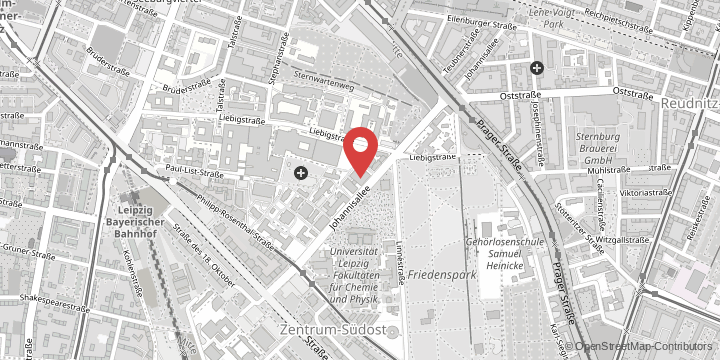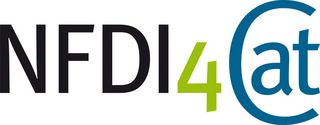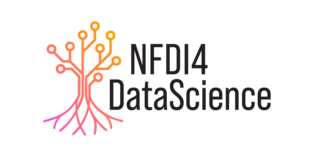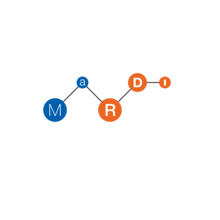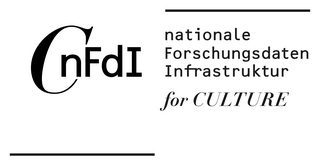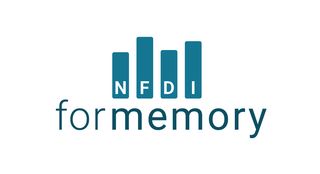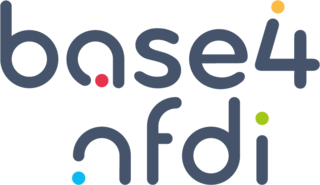In the National Research Data Infrastructure (NFDI), 26 subject-specific consortia and the BASE4NFDI consortium are developing services and advice that you can use for your subject-specific data management. The NFDI is jointly funded by the federal and state governments and is coordinated by the NFDI Directorate. In addition, five sections are dedicated to the cross-cutting topics of "Shared infrastructures", "Ethical, legal and social aspects of RDM", "Metadata and terminologies", "Training and education" and "Industry cooperation".
What does the NFDI do?
The NFDI consortia develop subject-specific technical infrastructures, training and advisory services as well as standards for handling research data and make these available to the respective communities. In addition, the BASE4NFDI basic service initiative promotes overarching technical solutions that all researchers can use to handle their research data, regardless of their subject area. This includes the development of a central JupyterHub, the establishment of an identity and access management system and a DMP tool instance.
Leipzig University is a member of the NFDI e.V., numerous researchers are active in a total of 14 consortia and four sections. If you are interested in participating in the NFDI (consortia, sections) or in using the services, please contact us by e-mail.
You can find an overview of all consortia and sections on the
NFDI website
Participation of the University of Leipzig
Consortium for research data in biology, ecology and biodiversity research
Use case for the integration of data collections by citizen scientists on functional properties of plants
Persons involved:
- Prof Christian Wirth
(Institute of Special Botany and Functional Biodiversity, German Centre for Integrative Biodiversity Research - iDiv) - Prof Miguel Mahecha
(Institute of Earth System Science and Remote Sensing)
Consortium for research data in catalysis research and catalysis-related sciences
Development and provision of specialised training and further education materials, management of Task Area 5 - Public Relations and Training
Persons involved:
- Prof Dr Roger Gläser
(Heterogeneous Catalysis)
Consortium for research data in chemistry
Collaboration in the Smart Lab and in the (further) development of subject-specific repositories, metadata standards, terminologies and training programmes
Persons involved:
- Prof Peter Hildebrand
(Institute of Medical Physics, Proteinformatics Workinggroup) - Prof Jens Meiler
(Institute for Drug Discovery) - Prof Peter Stadler
(Bioinformatics, Institute of Computer Science) - Junior Professor Julia Westermayr
(Theoretical Chemistry of Material Design, Wilhelm Ostwald Institute for Physical and Theoretical Chemistry) - Prof Kirsten Zeitler
(Organic Chemistry and Catalysis, Institute of Organic Chemistry)
Consortium for the support of interdisciplinary research data management with the help of data science and artificial intelligence
Participation related to medical informatics and technology
Persons involved:
- Prof Thomas Neumuth
(Innovation Centre for Computer Assisted Surgery (ICCAS)
Consortium for Research Data in Earth System Sciences
Implementation of pilot projects in the context of community engagement, coordination of the Incubator Lab
Persons involved:
- Prof Miguel Mahecha
(Environmental Data Science and Remote Sensing, Remote Sensing Centre for Earth System Research)
Consortium for Research Data in Condensed Matter Physics and Chemical Physics of Solids
Active collaboration in the areas of use cases, demonstrators, experiments and synthesis
Persons involved:
- Prof Roger Gläser
(Heterogeneous Catalysis) - Prof Marius Grundmann
(Semiconductor Physics, Felix Bloch Institute for Solid State Physics) - Prof Josef A. Käs
(Peter Debye Institute for Soft Matter Physics, Biophysics) - Prof Holger Wenckstern
(Combinatorial Epitaxy, Felix Bloch Institute for Solid State Physics)
Consortium for research data in mathematics
Creation of training and information offers in the task area data culture and community integration, support of the helpdesk
Persons involved:
- Prof Rainer Sinn
(Applied Algebra, Institute of Mathematics)
Participation of the University of Leipzig
Consortium for research data on tangible and intangible cultural heritage (art, music, architecture, theatre, dance, film and media studies)
Development of data quality standards, collaboration in the areas of data publication as well as overarching technical, ethical and legal aspects, access to community-specific research data sets, training of data competences
Persons involved:
- Prof Patrick Primavesi
(Theatre Studies) - Dr Anne Lipp
(Director of the University Library) - Dr Patricia Blume
(FID Media) - Director Stefan Hindtsche
(Musical Instrument Museum of the University of Leipzig)
Consortium for research data in the social, behavioural, educational and economic sciences
The specialised information service adlr.link at the University Library is involved in networking and bringing together the participating specialist communities.
Persons involved:
- Dr Anne Lipp
(Director of the University Library) - Dr Patricia Blume
(FID Media)
Consortium for research data in the historically orientated humanities
Development of methods and concepts for teaching data literacy
Persons involved:
- Prof Matthias Middell
(Global and European Studies Institute) - Dr Christoph Mackert
(Head of Manuscript Centre, University Library)
Consortium for research data on the material heritage of human history (archaeology and related sciences)
Development of guidelines and standards for the allocation of metadata for the re-use and description of Egyptological collections
Persons involved:
- Dr Jana Helmbold-Doyé
(Head of the Egyptian Museum at Leipzig University)
Consortium for research data in the text-based humanities
Networking the databases, participation in the Operations Coordination Committee
Persons involved:
- Dr Sebastian Herrmann
(American Literary Studies) - Prof. emeritus Gerhard Heyer
(Automated Language Processing, member of the Saxon Academy of Sciences) - Dr Anne Lipp
(Director of the University Library) - Dr Patricia Blume
(FID Media)
Participation of the University of Leipzig
Consortium for research data in biological image data analysis and microscopy
Organisation of workshops and courses, improvement of the findability of training materials and participation in the field of science communication
Persons involved:
- Dr Robert Haase
(Training Coordinator, ScaDS.AI)
Consortium for research data and personal data in medicine, epidemiology, public health and clinical studies
Processing of use cases in clinical studies, operation and further development of data repositories and archiving (repository: Health Atlas), enabling local data access options
Persons involved:
- Prof Toralf Kirsten
(Medical Data Science, Medical Informatics Centre) - Dr Frank Meineke
(Institute for Medical Informatics, Statistics and Epidemiology - IMISE) - Matthias Löbe
(Institute of Medical Informatics, Statistics and Epidemiology - IMISE)
Participation of the University of Leipzig
Basic service initiative to establish overarching technical services for all NFDI consortia
Development of identity and access management for all NFDI participants, establishment and provision of a common interface for access to NFDI resources based on DFN-AAI
Persons involved:
- Sebastian Frericks
(Research and Development Department, University Computing Centre)




















































